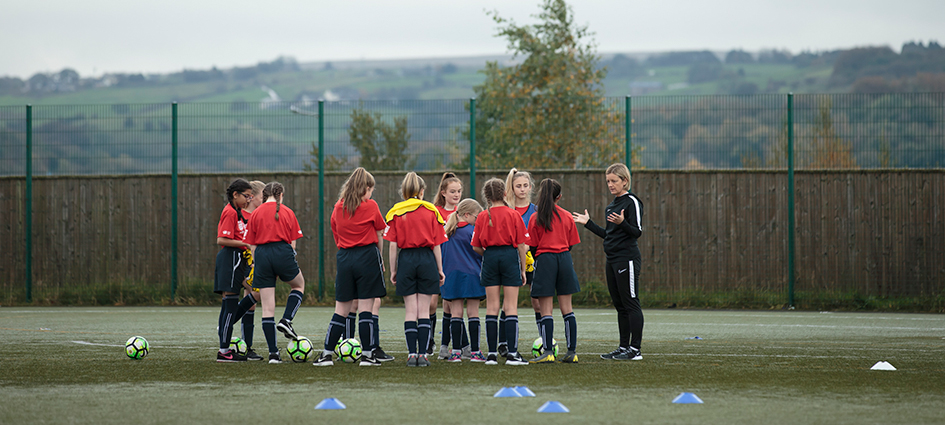
Coach decision-making model
- The Boot Room
- 15 May 2020
The FA is committed to inspire, empower and support coaches to make better decisions.
To help with this, we’ve created our ‘Coach Decision-Making Model’ (see below). This model highlights the core elements that we believe underpin the thinking of effective coaches.

Breaking it down
The four central hexagons each relate to a section of our England DNA, with The FA 4 Corner Model sitting behind them.
Surrounding all of that sits:
- your own individual philosophy
- your club’s philosophy
- your club’s environment.
None of these elements act in isolation and your decision-making will be influenced by factors from across the model, which will vary also depending on the kind of decision you’re making. For example: how to deal immediately with a player’s poor behaviour versus deciding your team’s long-term style of play.
As a coach, you're continuously required to make decisions in order to best support the development of your players. Below are some key considerations to help you understand your ‘self’ as a coach and make sense of 'who’ and ‘what’, linked to ‘how’ and ‘where’ you’re coaching.
Take time to reflect on the questions posed in the different areas:
Why do you coach? And why do you coach the way you do?
How would you feel being coached by you? How would your players describe you as a coach? How will you be remembered?
What are your strengths as a coach and what are you focusing on to improve?
As people, who are your players? What are their purposes for playing and how does football fit into their lives? What experiences do they seek from football?
What stages of development are your players at? How well do you recognise individual differences of your players across the four corners?
What are you helping to prepare the young players for in their futures?
What are you trying to help your players learn? How well do you specifically focus on developing players across all four corners?
Why do you ask your players to play in the style and manner you do? To what extent do you encourage individuality and creativity in your players?
How much do you, and your wider club environment, place value on footballing intelligence and skill, and not just on physical strength or speed?
How would you describe your coaching? How well do you interact with your players and why?
To what extent do your practices represent 'the game' that your players play on their matchdays? How do you coach on matchdays and to what extent does it link to training?
How well do you engage others (coaches, parents, support staff) in the process of developing your players?
What would great coaching look like to you in your environment and why? How do you adapt your coaching depending on weather, facilities and other external factors?
What's the club philosophy – "How are things done round here?” How does the culture you work within affect your coaching? How positive is the environment? Do you and the other coaches in your club have a collective approach or is the club badge the only thing that links you together?
All of these things affect the players’ experiences of football. There might be some things you can easily amend to positively impact your coaching and maybe other factors that are out of your control. What’s important is that you reflect on your coaching and the decisions you make, to make sure that the needs of the players always come first.
To find out more, explore our Youth Development Phase DNA playlist.


